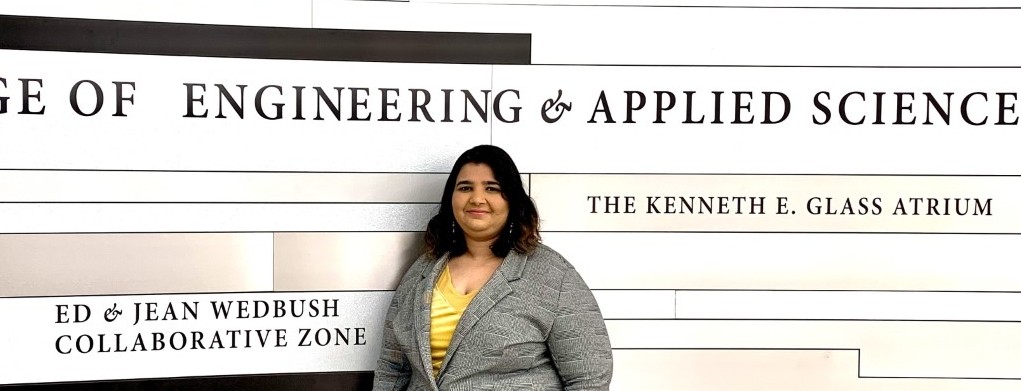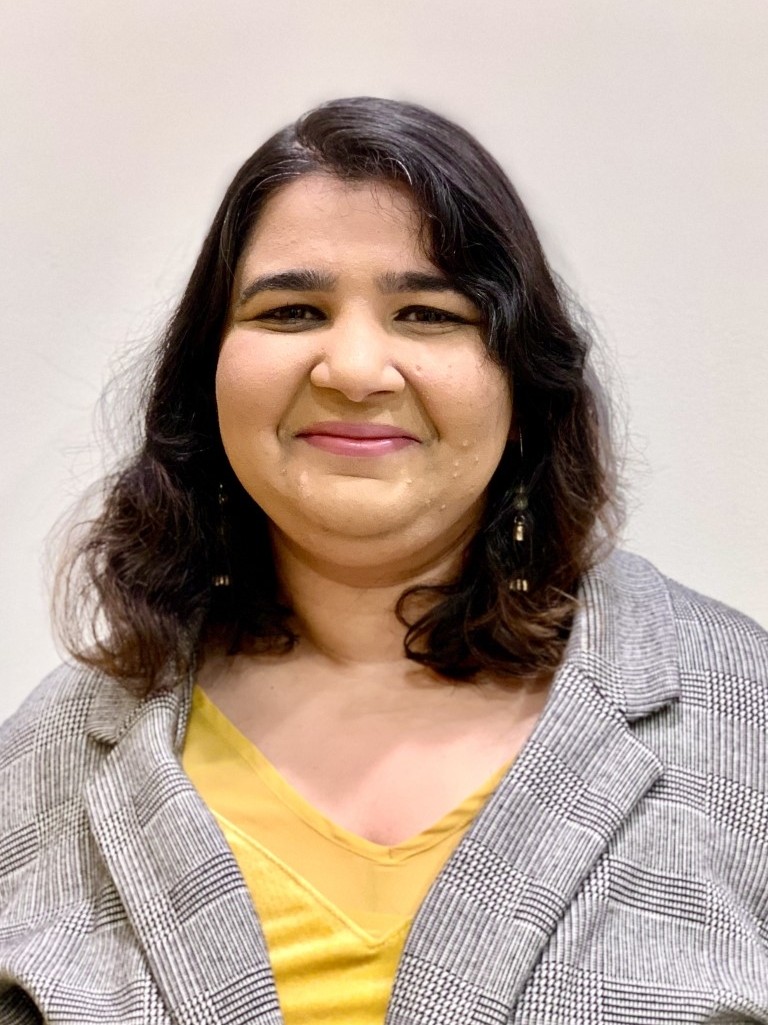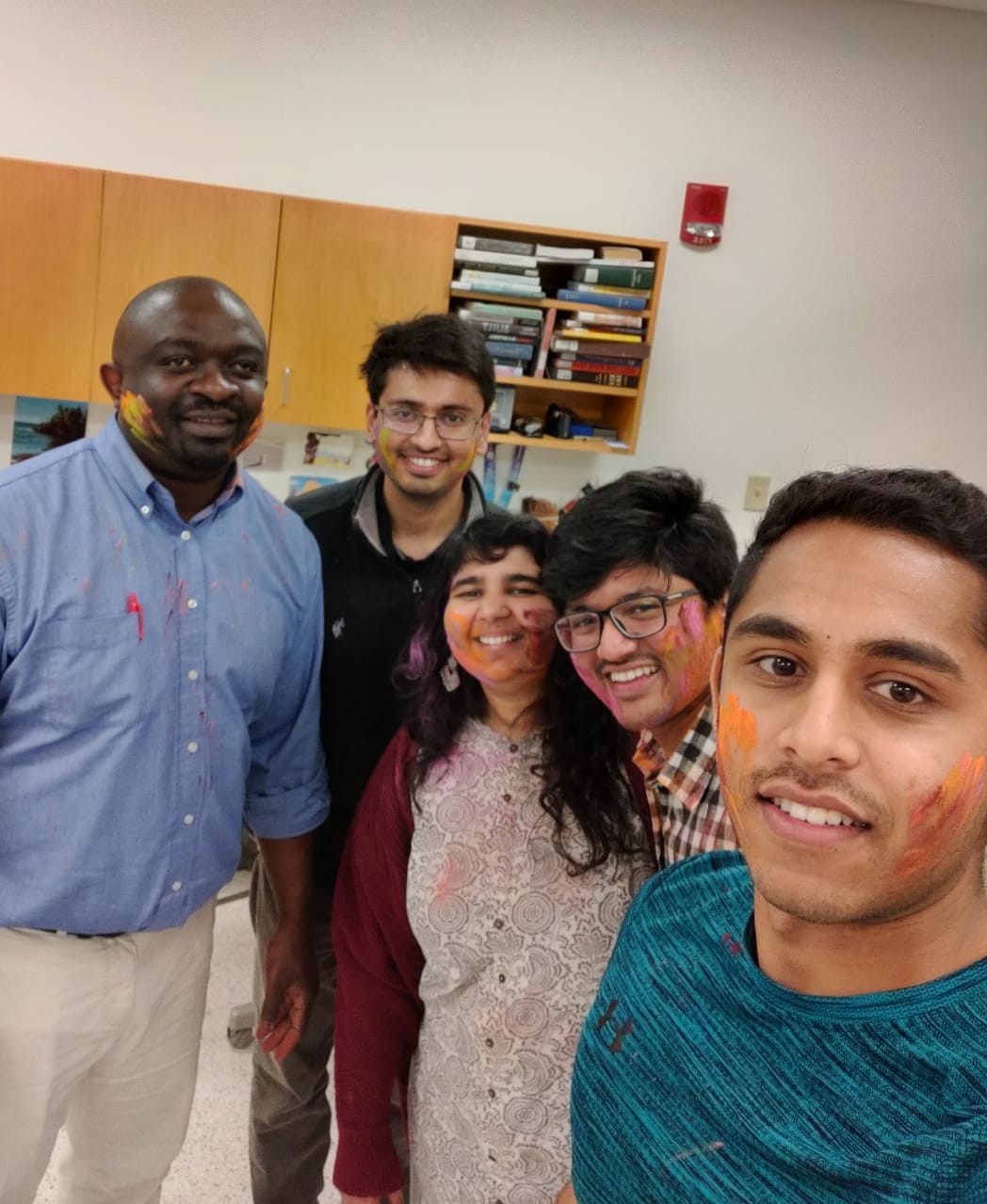
PhD student aims to improve how engineering is taught
Aerospace engineer uses her passion for teaching to help future engineering faculty members
Jutshi Agarwal is a trailblazer as the first student enrolled in the engineering education graduate programs that officially launched in 2020 at the University of Cincinnati. With two degrees in aerospace engineering under her belt, she decided to pursue her PhD in the field that explores the research and study of how best to educate engineering students. She was named Graduate Student Engineer of the Month by UC’s College of Engineering and Applied Science.
Why did you choose UC for your master's and why did you stay for your Ph.D.?

Jutshi Agarwal. Photo/provided.
When I was considering doing my master’s in aerospace engineering in the United States, I applied to several universities with elaborate programs in the field. During my application process, I talked to graduate students at UC in the program to gain some perspective. They recommended the program and the potential of its students to succeed in an engineering career. It also helped that my cousin was a master’s student in the electrical engineering program here and spoke highly of the culture at the university.
Towards the end of my master’s, I was looking for a shift in my career focus, specifically my research area. That is when I learned about the then-forthcoming graduate programs in engineering education at the College of Engineering and Applied Science. UC was one of the first few institutions to offer graduate programs in engineering education, and it was the ideal opportunity for me to apply my engineering knowledge in an area that I was always passionate about — education.
What drew you to the field of engineering education?
Teaching others had always been something I was involved in, even in middle school where I would tutor my peers and underclassmen. As an international student at UC, I experienced a diverse range of teaching styles, especially compared to my undergraduate degree in India. One of the aims in engineering education is to equip higher education faculty with tools so they can teach better. This is particularly important because in engineering we spend a large part of our early career doing research and don’t get a chance to improve our teaching. When I first heard about engineering education as a discipline, I really got hooked on this idea of “how do we make teaching better.”
I feel like I have found my place in my professional life. It has been enlightening to learn about research in a whole new light that sometimes is in stark contrast with research I did in my aerospace engineering master’s program. It was exciting to take classes in how people learn, what are different ways to teach engineering and how to design a course for specific populations. Taking courses in social science research methods as an engineer has been a fascinating ride.
Engineering education is still growing as a discipline and new knowledge is being created every day. It really excites me to learn a new teaching technique or a new finding about how students learn best.
It really excites me to learn a new teaching technique or a new finding about how students learn best.
Jutshi Agarwal PhD student
Describe your research work.
My broad research interests lie in preparing engineering graduate students to become better teachers when they join a college of engineering as faculty. For my dissertation, I am exploring what teaching training they receive and how this impacts their confidence as an instructor. The goal is to augment their graduate education, so they are better prepared to take on the multi-faceted role of a higher education professor which includes both teaching and research.
My passion lies in teaching and making sure no student struggles to gain knowledge because their communication style didn’t align with the teacher’s. I figured the place to start is early on with graduate students themselves, so no one has to go through the hurdle of a steep learning curve early in their academic career. Graduate students also serve as teaching assistants, which makes them vital to the impact the class has on students. I also am using tools I learned in aerospace engineering and applying them in engineering education to help instructors form teams in classrooms.
What are a few of your accomplishments of which you are most proud?

Department of Engineering Education members celebrating Holi, the Hindu Festival of Colors marking the end of winter. Photo/provided.
Since the beginning of my doctoral degree, I have served as the lead graduate teaching assistant for the Department of Engineering Education, managing 70 other teaching assistants for a class of 1,100-1,400 first-year engineering students. I have loved every day of this job because of its dynamic nature. It has helped me grow as a professional and a future faculty member.
I am also very proud to have established the student chapter for the American Society for Engineering Education (UC-ASEE) here at UC. As a student organization, we hope to provide mentorship and leadership opportunities to undergraduate and graduate students interested in an academic career in STEM disciplines.
We want to start mentorship programs for high school, undergraduate and graduate students, so they can pursue careers in academia. We also want to raise awareness for issues around student mental health, accessibility and diversity in engineering. I encourage students who are interested in these issues to join our organization and help us organize events for the larger student community.
I also serve as a mentor to international women for Women Walking West. It is an organization that helps women moving to the U.S. get acclimated to the culture and language and also get career support.
What are your future goals?
I am hoping to start my career as a faculty member in a department of engineering education. Besides teaching foundational engineering courses, I am also hoping to further research on graduate student teaching development. I am really hoping to see programs like Preparing Future Faculty become more ubiquitous in STEM disciplines, and I want my research to contribute to a more structured graduate student professional development program across the nation.
Related Stories
OTR mural celebrates UC alumni success
April 4, 2025
The UC Alumni Association, UCAA, will mark its annual Alumni Celebration during its upcoming Alumni Week, April 7-13, with a community art project commemorating this year’s slate of alumni honorees receiving the organization’s top awards.
UC students combine engineering and design experience
April 3, 2025
At the University of Cincinnati, the College of Design, Art, Architecture and Planning hosted a design competition with HAAG-Streit USA, where students were tasked with designing an ophthalmology workstation that is accessible and able to be incorporated into retail settings. Caleb Loayza, a mechanical engineering student at the College of Engineering and Applied Science, and Guy Mueller, an industrial design student, combined their expertise and took home first place.
UC Honors students gain hands-on research experience
April 1, 2025
The Biomedical Research and Mentoring Program is open to any University Honors Program students. The faculty mentors are typically from UC’s College of Medicine or Cincinnati Children's Hospital.
